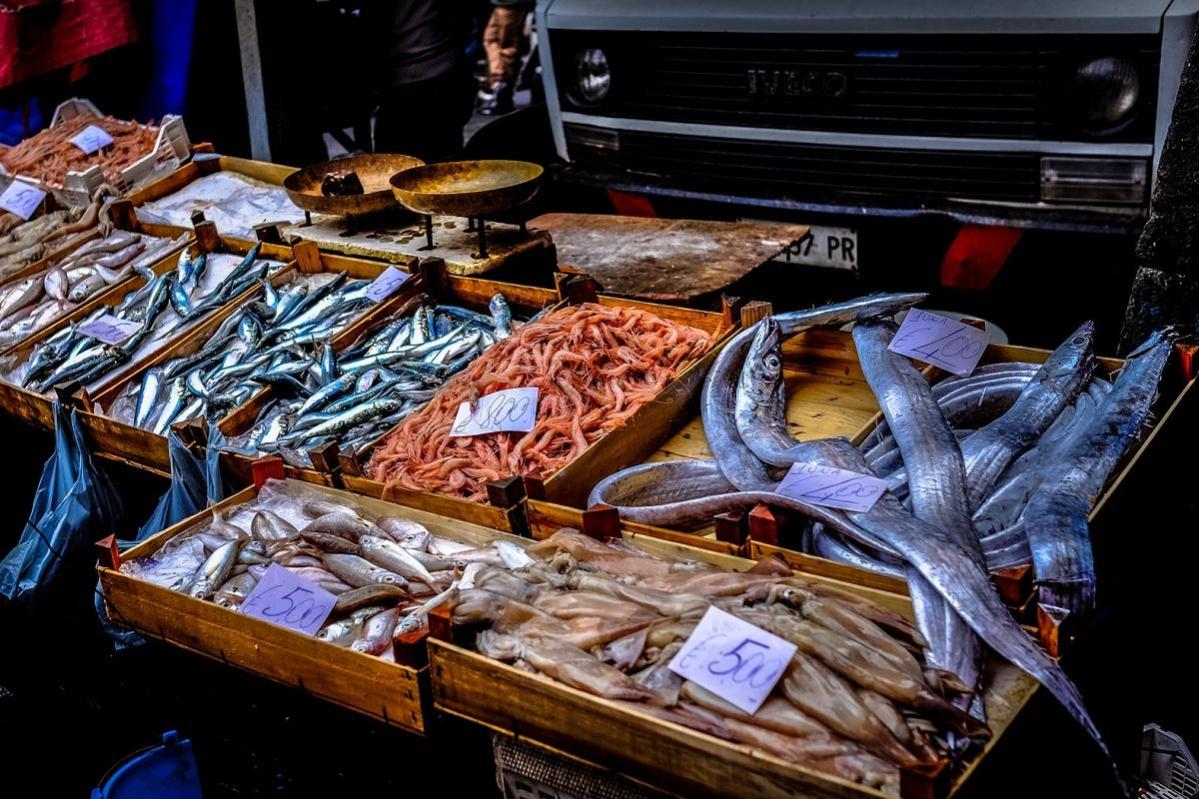

Top of the Swaps: five fish to avoid & what to eat instead
Ruth Westcott reveals the top fish species to avoid, and some sustainable, UK-landed alternatives.
We know that we are advised to eat two portions of fish per week, but also that our oceans are battling with joint pressures of overfishing and pollution; threatening some species with extinction and some fish stocks with collapse.
Confused about what to eat and what to avoid? Fear not – the ‘eel is here to help with our nine top choices for healthy, sustainable fish that is landed in the UK – and those that you should steer clear of (for now at least).
Swap 1: Cod vs Coley
A number of the UK’s cod stocks are still considered overfished so the only option is cod carrying the Marine Stewardship Council ecolabel.
Swap for…
Coley: A delicious, healthy, and much cheaper alternative to cod. Coley stocks are thought to be in good shape around the UK and fish are caught using low by-catch nets. Coley is one of the top choices for sustainable British fish.
Hake: Hake has a similar light flesh to cod, but is much more flavourful. It is a deep water fish and stocks are healthy around the UK coast. Look out for hake which is MSC certified from Cornwall.
Swap 2: Skate vs sole
Despite being a popular and traditional choice on chip-shop menus, almost all varieties of skate and ray are overfished, and there is little evidence that they can be targeted sustainably at the moment.
Instead, opt for...
Witch, sole, dab, and Flounder: These are the most sustainable flatfish choices in the UK and taste wonderful cooked simply with lemon or butter. If you are in a chip-shop and have a hankering for ray, choose haddock or hake.
Swap 3: King Prawns vs mussels
Although tempting, king or tiger prawns are predominantly farmed in the tropics and shipped over to the UK. King prawn production has been found to be socially and environmentally destructive and reports point to slave labour in both fishing and processing operations.
Ditch for…
Mussels: They provide wonderful benefits to our health and the oceans, being high in Vitamin B12, Selenium and Iodine. Mussel cultivation barely impacts the environment, and are produced by culturing ‘seed’ mussels on ropes suspended in water, or naturally on sea floors. Better still, mussels filter heavy metals out of the sea by fixing them in their shells.
Brown crab: Brown crabs are found throughout the UK coast. The ‘fishing’ method means there is hardly any unwanted by-catch and little contact with the sea bed. They are the second most important shellfish species for inshore landings in England (behind lobster), meaning you are supporting British fishers. Plus brown crab has fantastic nutritional content; it’s one of the best natural sources of Omega-3, copper, zinc, magnesium and vitamin B12.
Want more sustainable food tips? Sign up for our news.
Swap 4: Salmon vs sardines
Salmon farming has recently been associated with overuse of chemicals and antibiotics, and with increases in sea lice, which can be transmitted to wild fish. The best options for farmed salmon are RSPCA Assured, organic, Aquaculture Stewardship Council certified, or BAP certified or wild-caught salmon from the USA and Canada.
Instead try…
Trout: Like salmon, trout is an oily and meaty fish, but tends to be farmed with fewer chemicals and antibiotics. In the UK it is farmed on a small scale, which limits environmental damage. And again is a fantastic source of omega-3 fatty acid and is low in saturated fat.
Sardines: Small, inexpensive, and packed full of flavour, they can be found across the UK, but are mainly fished in Cornwall from September to November. Considered one of the healthiest things you can eat, they are naturally high in Vitamin D and one of the richest sources omega-3 fatty acids.
Mackerel: a fast-growing fish, resilient to fishing pressure, and caught using low by-catch methods. It is also an excellent all year round protein source as you can buy smoked and tinned mackerel when fresh mackerel is out of season (i.e. when not summer.)
Swap 5: Eel vs herring
Despite the name of our beloved magazine, we advise readers to avoid eating eels, as European Eel populations have plummeted and the species has been declared Critically Endangered in the wild.
Switch for:
Herring: one of the most abundant fish species in the North Atlantic, it plays an important role in the ocean’s ecosystem, as prey for cod, saithe, whiting, mackerel, sea birds and marine mammals. If you can’t get enough jellied eel in your life, try sweet marinated herring roll mops- they are a fantastic source of vitamin A and D, with more of both than beef and pork combined.
Hungry for more? Find out why you might want to ditch the farmed salmon. Or find out how to eat less but better Meat and Dairy.
Join the Sustainable Fish Cities newsletter for regular updates on the campaign.
@fishcities
London Food Link: London Food Link brings together community food enterprises and projects that are working to make good food accessible to everyone in London to help create a healthy, sustainable and ethical food system for all.
Sustain
The Green House
244-254 Cambridge Heath Road
London E2 9DA
020 3559 6777
sustain@sustainweb.org
Sustain advocates food and agriculture policies and practices that enhance the health and welfare of people and animals, improve the working and living environment, promote equity and enrich society and culture.
© Sustain 2026
Registered charity (no. 1018643)
Data privacy & cookies
Icons by Icons8